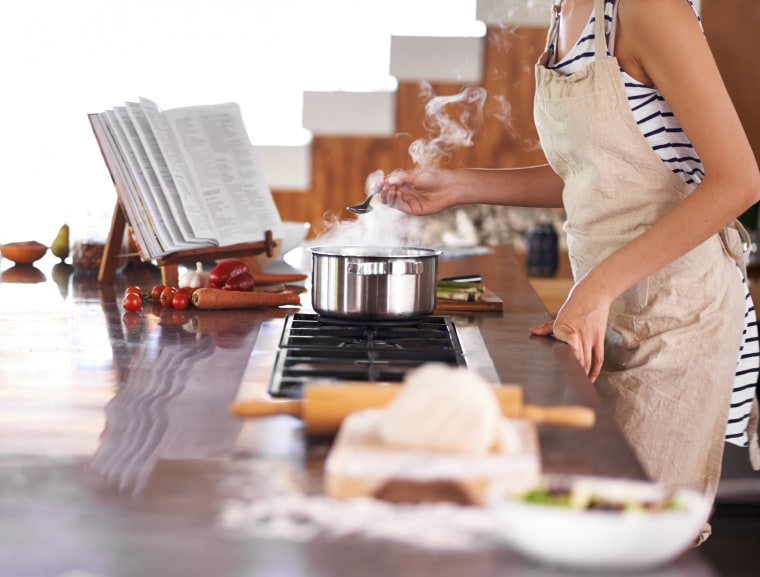The growing ubiquity of mobile devices, plus America’s collective obsession with internet-based cooking platforms, were supposed to usher in the demise of hard-copy cookbooks. Instead, new data from market researchers at The NPD Group finds that we’re, well, eating them up.
Cookbook sales for the first six months of 2018 were 21 percent higher than for the first half of 2017. Roughly 17.8 million cookbooks were sold in the United States last year, and this year’s total is likely to eclipse that, according to NPD’s books industry analyst Allison Risbridger.
"It’s interesting and counterintuitive,” Risbridger said. “The success of cookbooks is really related to a broader phenomenon in the United States of people wanting to spend more time in their homes and in their kitchens.”
The appeal of physical cookbooks compared to their online counterparts is multifaceted. “Cookbooks are often much more targeted toward the specific tastes of the consumer. Oddly, with all of the potential for customization online, the cookbooks are better at defining themselves around a theme,” said David Just, professor and co-director of the Cornell Center for Behavioral Economics in Child Nutrition Programs at Cornell University.
Some of the demand seems to be driven by interest in healthy eating and nutrition; Risbridger said cookbooks for low-carbohydrate meals are brisk sellers. A correlating trend is the popularity of small appliances like the pressure-cooker-slow-cooker hybrid Instant Pot and “air fryers” that cook typically fatty fare like fries with a fraction of the oil.
“There’s a long history of that in the United States because we love our gadgets… and we buy cookbooks specifically for that,” said Amy Trubek, associate professor and faculty director for the Food Systems Graduate Program at the University of Vermont.
Experts theorize that cookbooks satisfy a more existential hunger.
“The same thing that’s fueling all this interest in fad diets is the anxiety about our food. The anxiety about what we’re putting in our bodies seems to be a prevailing theme,” said Janet Chrzan, an adjunct assistant professor of anthropology and nursing at the University of Pennsylvania.
NPD found that the top-selling cookbook of the year is from DIY lifestyle guru and Fixer Upper star Joanna Gaines. “Magnolia Table” has sold 676,000 copies in the first half of 2018 alone, although Gaines is not a chef and has no claim to culinary fame.
“Making food and having dinner at home is part of this idealized domestic life we’re always struggling with in the United States,” Trubek said. “I think people do use the internet a lot for quick recipes, but I don’t think people aspirationally read websites. I think they aspirationally read beautiful, glossy cookbooks.”
“For quite a while now, cookbooks have been as much about coffee table books as they have been about being functional manuals for the kitchen,” said Jeffrey Pilcher, professor of food history at the University of Toronto Scarborough. “It’s a voyeuristic thing. People are buying them to look at the pictures.”
But it’s not entirely about escapism. As anyone who has ever prepared a dish using an online recipe knows, there are practical advantages to a physical book. “There are some real shortcomings in using electronic technology for cooking. Screens dim when you need them, your fingers are covered in goo, they can be hard to scroll around to see both the ingredient list and the instructions,” Just said.
Cookbooks can stand up better than tablets to having chicken broth spilled on them or falling on the floor, Chrzan pointed out. “It might just be easier to have the book open on the counter.”
